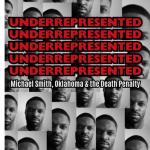I had some interaction with someone on Facebook about the subject of same-sex relationships in the context of Christianity and the Bible. I thought that it might be of interest to a wider audience. and thus am sharing it here. Since I haven’t asked my conversation partner for permission to name them, I have left them anonymous. Our interaction started with the following comment that I left on a post of theirs about recent developments in the Church of England with respect to same-sex relationships.
James McGrath
If the Holy Spirit can let uncircumcised Gentiles into Abraham’s household, then the Holy Spirit can let people in same-sex relationships into the people of God. If you wish to insist otherwise you are free to do so, but kindly don’t pretend that is the Christian stance and all others are not. James was a Christian, but so too was Paul.
Conservative Anglican
I don’t think there is any doubt that gay people are part of the people of God; that is not the debate (as my gay Christian friends would testify). The question is the pattern of sexual relationships, which is a separate question since we are not ontologically bound to our actions. Clearly no-one in scripture thinks that the inclusion of the gentiles leads to the redefinition of marriage away from the creation norm. It is odd (or ironic) that you cite Paul, since he is the one who *both* champions the inclusion of gentiles *and* makes explicit what is implicit in the teaching of Jesus, that marriage is between man and woman. He holds these two realities together in that powerful phrase in 1 Cor 6.9: ‘such were some of you, *but*…’ And the underlying theological narrative is that circumcision (along with food laws) was a distinctive for the Israel of God as a means to the goal of Israel being a light to the nations. The inclusion of gentiles as gentiles was the fulfilment of this. Neither were part of God’s creation intention—unlike male-female marriage. (But I think you know all this…?) As E P Sanders summarises:
Homosexual activity was a subject on which there was a severe clash between Greco-Roman and Jewish views. Christianity, which accepted many aspects of Greco-Roman culture, in this case accepted the Jewish view so completely that the ways in which most of the people in the Roman Empire regarded homosexuality were obliterated, though now have been recovered by ancient historians…Diaspora Jews had made sexual immorality and especially homosexual activity a major distinction between themselves and gentiles, and Paul repeated Diaspora Jewish vice lists.
And as Luke Timothy Johnson reminds us: “The task demands intellectual honesty. I have little patience with efforts to make Scripture say something other than what it says, through appeals to linguistic or cultural subtleties. The exegetical situation is straightforward: we know what the text says. But what are we to do with what the text says? I think it important to state clearly that we do, in fact, reject the straightforward commands of Scripture, and appeal instead to another authority when we declare that same-sex unions can be holy and good.”
James McGrath
Yes, being uncircumcised was the subject of a severe clash between Greek and Jewish views, and Paul’s opponents had little patience with the efforts to make scripture say something other than it says. Thus your stance would be a deeply problematic one even apart from the fact that neither the heterosexual marriage of today nor same-sex marriage were what biblical authors were talking about.
Conservative Anglican
I don’t think I understand your comment. Both James and Paul don’t assert something contrary to scripture; they precisely appeal to scripture, in creation of humanity as male and female, and the eschatological goal of all nations being drawn to Zion. There is no comparable scriptural argument for same-sex sexual relationships, which is why both continued to teach against them. I don’t understand your comment about marriage not being the same; despite the different social contexts, the continuity is the understanding of marriage as a lifelong, exclusive commitment between one man and one woman which normally leads to procreation and parenting.
James McGrath
Until Paul made it there was no comparable argument for ignoring that plain teaching of Genesis that everyone who becomes part of Abraham’s household must be circumcised. That Paul used scripture to justify doing so did not impress his opponents.
There had indeed been a cultural shift towards marriage as between one man and one woman by New Testament times, but claiming that as biblical marriage, ignoring what it says about concubinage, and everything else you’re doing in pretending that the Biblical stance on marriage is consistent, simple, and matches yours will not impress anyone who is actually aware of the diverse biblical material on the subject.
Conservative Anglican
You are mistaken that Paul was the first to claim this. John the Baptist implies it in Matt 3.9, and Jesus talks of ‘many coming from the east and the west to sit at Abraham’s table.’ I don’t care whether Paul’s opponents were impressed. The question is what does scripture say. You need to read my comments more carefully; I don’t claim that all the social and cultural elements of marriage are the same. Of course there is diversity, because a. much biblical narrative is descriptive, not prescriptive and b. the social context is different. What I am pointing out is that the theological core of marriage, set out by Gen 1 and 2, remain constant. The creation accounts functioned as reforming texts as Jesus’ own citations shows.
James McGrath
There is definitely a degree of continuity between John the Baptist and Paul, and so if you want to view the man who is the focus of my new book as the real radical innovator I have no objection.
You seem unable to see how much your use of scripture mirrors that of Paul’s opponents, just on a different topic. Perhaps someday you will but no need to continue until that day arrives.
Conservative Anglican
James McGrath the line ‘one day you will come to realise your error and that I was right all along’ is both patronising and a power play. It suggests that you have run out of responses on the actual issue. It is bizarre for you to claim that your own position contradicting Paul’s explicit teaching is following Paul’s logic. If it is, how come he didn’t come to your conclusion…??
James McGrath
Why didn’t others come to the conclusion that uncircumcised Gentiles can become part of Abraham’s household? Why didn’t countless generations realize that, despite the clear acceptance of slavery throughout scripture all it takes is the Golden Rule to make a case for its abolition? This is precisely my point that you consider patronizing and a power play. The SBC folks currently discussing the abhorrently unbiblical idea (in their eyes) that there can be women pastors do not see themselves as adopting the same approach to the Bible that led their forebears to conclusions that their descendants now shake their heads in shame at. I am not claiming that all this shows I am right and you are wrong. What it does show is that it is false to claim as you do that same-sex relationships is the first topic on which anyone has argued that, despite there being clear individual passages against something, there can also be a case based in scriptural principles for that thing.
Conservative Anglican
It shows no such thing. The biblical texts on women’s ministry and authority are mixed–some affirming, some apparently denying. There is complex work to do. The biblical texts on same-sex relations are unambiguous and consistent—hence Luke Timothy Johnson’s comment. The issues are not comparable.
James McGrath
The Biblical texts on allowing uncircumcised Gentiles into Abraham’s household were consistent until the church decided to make the writings of a man who argued otherwise into scripture. There are no texts on same-sex relations that are not framed within the ancient Mediterranean patriarchal view of marriage as an institution for producing legitimate heirs. That’s why according to biblical law a woman who sleeps with anyone but her husband is an adulteress but a man who sleeps with another woman (assuming she is not someone else’s wife) is merely taking a concubine. He could also take additional wives. “Biblical marriage” certainly begins to be redefined in certain ways by the early Christians, and some of us think that the implications of that redefinition, making it about a mutual relationship of love and commitment rather than merely a means to produce heirs and manage household, has implications for our time beyond those you’re willing to accept.
Conservative Anglican
Sorry, none of that is true. The actual Council of Acts 15 preceded Paul’s writings becoming scripture! (I hope you know that!) The creation accounts are not framed in patriarchy—if anything, quite the opposite! You are creating a straw man ‘biblical marriage’ which is odd; no-one does their theological reading of scripture by taking all the verses and bundling them together in the way you are. You are disagreeing with your own wooden reading, not with mine. ‘Merely’ is doing a lot of heavy lifting there—and again, not reflecting the biblical texts. For some reason you have deleted the cry of recognition in Gen 2.23—I think because you need to to fit your argument.
James McGrath
I hope you know that there is some uncertainty about what the historical event was that lies behind Acts 15. Be that as it may, do you accept that the clear teaching of scripture in Genesis 17:10-14 could be overturned so long as the majority at a church council agreed to do so?
Genesis 2 is actually
central to my view. Unlike you, I don’t think that it is good for those human beings who are attracted to people of the same sex to be alone. I think the principle in Genesis 2 is clear that we are created to find someone that we experience to be our “missing other half.”
Conclusion
That was not the end of that conversation, but I don’t think it helpful to reproduce the whole thing. My conservative Anglican conversation partner pointed to the impressive number of impressive scholars who agree on what the scriptures say on this topic. I replied:
You seem to be missing the point. I don’t disagree that there are texts that oppose what same-sex intercourse represented in that time and place. If we think about the Greek context, it wasn’t something generally pursued as a lifelong commitment, it was older men using younger men for their own sexual satisfaction. Many of the abolitionists agreed that the Torah and epistles accepted slavery. They argued on the basis of other biblical texts and principles that it was nonetheless right and good to abolish what others before them had accepted and legislated. As Wayne Meeks pointed out in his famous piece on the topic (‘The “Haustafeln” and American Slavery: A Hermeneutical Challenge’), the exegesis on the side of the defenders of slavery was typically better.
Since that essay by Wayne Meeks is not available online I will conclude by quoting and linking to another Anglican scholar, Richard Burridge, who writes, “the abolition controversy two hundred years ago parallels our current crisis between those who want to be biblical upholding the tradition and those who are ‘inclusive’. Yet we are now clear that those who claimed to be biblical were wrong – and the then dangerous liberals are now seen as inspired by the Bible to bring freedom.” See as well Claudia Setzer’s study of feminist interpretation of the Bible as it intersects with the approach to biblical interpretation used by defenders of slavery, which is still seen not only in connection with the opposition of same-sex relationships, but also the opposition of women as leaders in a Christian context.
















